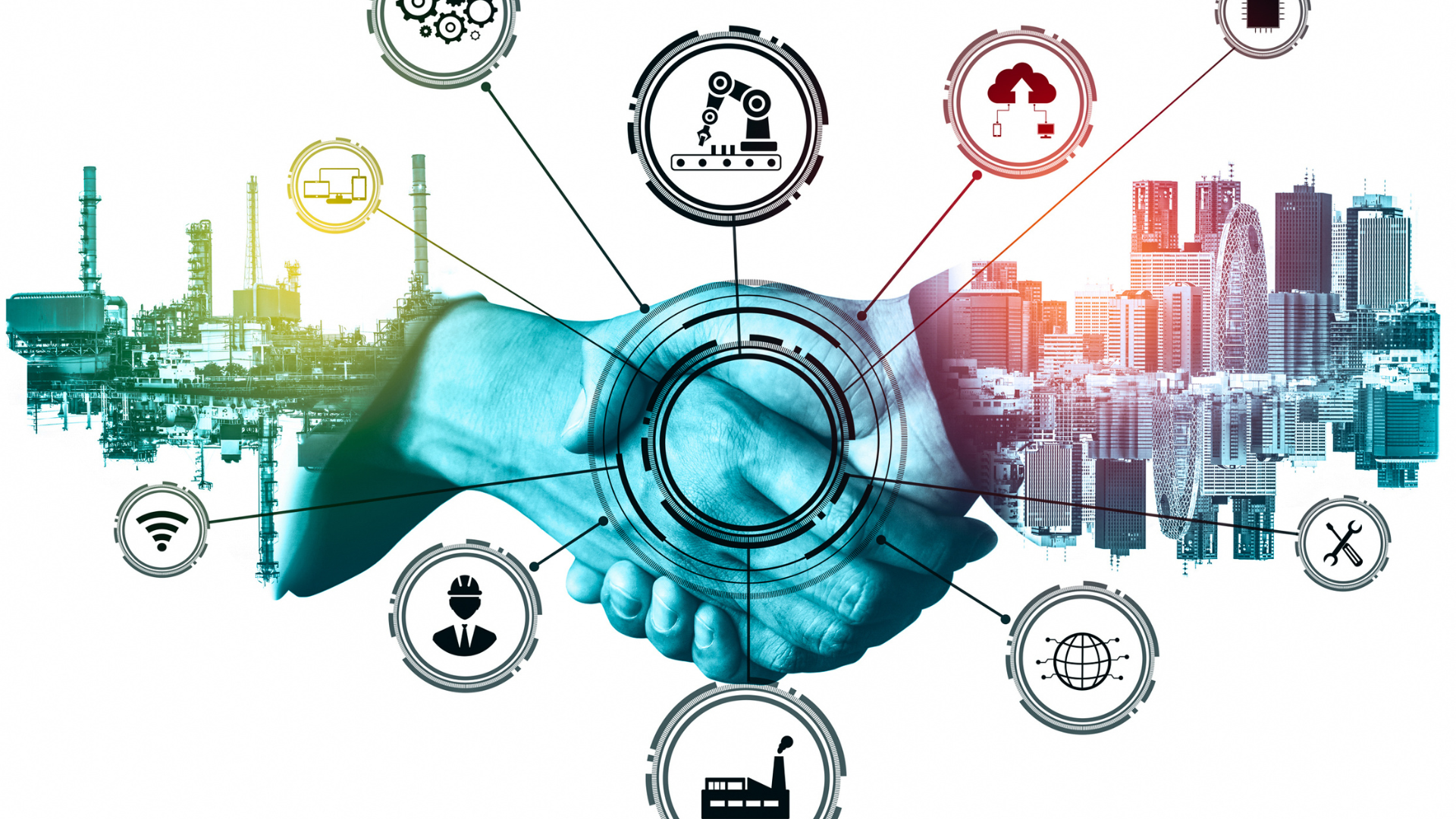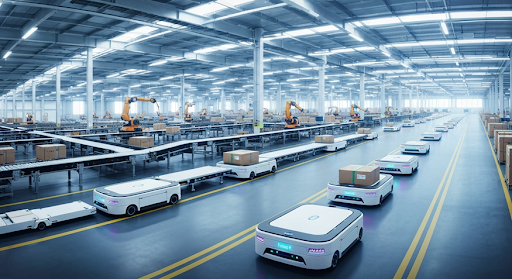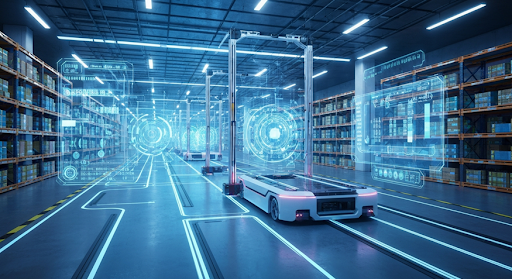What Are the 4 Types of Industry?
What does Industry 4.0 Mean?
Industry 4.0, also referred to as the Fourth Industrial Revolution, signifies a monumental shift in various industries as they embrace and integrate state-of-the-art technologies. This integration is not only limited to a few sectors but encompasses a wide range of industries, revolutionizing the way they operate and thrive in today's fast-paced digital landscape. It unequivocally symbolizes a momentous and transformative shift towards the seamless integration of automation, digitization, and connectivity within the realm of manufacturing processes. This paradigmatic change marks a significant leap forward in harnessing the power of cutting-edge technologies to enhance efficiency, streamline operations, and optimize productivity across the entire manufacturing industry.
What does Industry 4.0 Mean in Supply Chain?
In the ever-evolving landscape of supply chain management, the emergence of Industry 4.0 has brought about a groundbreaking revolution that completely transforms the entire process of goods production, distribution, and consumption. It is imperative to acknowledge that Industry 4.0 disrupts traditional supply chain practices and introduces unprecedented advancements that enhance efficiency, streamline operations, and optimize resource allocation throughout the entire value chain. This paradigm shift paves the way for a new era of supply chain management where cutting-edge technologies such as Internet of Things (IoT), artificial intelligence (AI), and big data analytics seamlessly intertwine to create a highly interconnected and intelligent ecosystem. With Industry 4.0 at its helm, organizations can now embrace an agile approach to meet consumer demands with utmost precision while significantly reducing costs and maximizing profitability. By leveraging this transformative force, businesses gain unparalleled competitive advantage in an increasingly demanding market landscape. By harnessing cutting-edge technologies such as the Internet of Things (IoT), artificial intelligence (AI), big data analytics, and cloud computing, supply chain operations are empowered with the ability to monitor and optimize in real-time. This transformative capability allows for seamless and efficient management throughout the entire supply chain journey. With these powerful tools at their disposal, businesses can achieve unprecedented visibility, control, and precision in their logistics processes.

What are the 4 Types of Industry?
When engaging in a discussion about the four types of industry in relation to Industry 4.0, it is crucial to emphasize that these classifications are not set in stone or limited in their scope. Instead, they serve as a strategic framework that enables us to comprehend and analyze various sectors within the context of Industry 4.0. By utilizing this framework, we can gain a deeper understanding of the dynamic nature of industries and how they are impacted by the advancements brought forth by Industry 4.0.:
1. The primary industry, also known as the backbone of the economy, encompasses vital activities that involve extracting raw materials directly from nature. These activities include but are not limited to agriculture, mining, forestry, and fishing. These sectors play a pivotal role in supplying essential resources for various industries and are crucial for economic development and sustainability.
2. The secondary industry, also famously recognized as the manufacturing industry, is an incredibly powerful sector that plays a pivotal role in our global economy. It excels in the art of transforming raw materials into exceptional finished products through intricate processes such as assembly and fabrication. This sector utilizes cutting-edge technologies and employs skilled professionals to ensure the highest standards of precision and quality are met at every stage of production. It stands as a testament to human ingenuity and serves as a cornerstone for economic growth and development worldwide.
3. The tertiary industry, also referred to as the service sector, plays a crucial role in supporting and enhancing the operations of both primary and secondary industries. It encompasses a wide range of essential services that are vital for the smooth functioning of our economy. These services include transportation, retailing, healthcare, banking, education, and hospitality. They are not only essential for meeting the needs and demands of individuals and businesses but also contribute significantly to economic growth and development.
4. The quaternary industry, often referred to as the knowledge-based sector or information economy, is a powerhouse of activities focused on cutting-edge research and development (R&D), innovative management strategies, top-notch consulting services, and advanced information technology (IT) solutions. This sector thrives on harnessing the power of knowledge and expertise to drive progress and efficiency in various industries. It plays a vital role in shaping the future by spearheading technological advancements, providing expert guidance, and delivering state-of-the-art IT services.
Gaining a comprehensive understanding of how these industries intersect with the revolutionary concept of Industry 4.0 is absolutely crucial for businesses that are determined to harness the full potential of emerging technologies for unparalleled productivity and exceptional efficiency. It is imperative that businesses recognize the significance of this intersection and seize the opportunity to integrate cutting-edge technologies into their operations, thereby staying ahead of the competition and maximizing their overall success and competitiveness in their respective sectors.
Industry 4.0 Essay
When it comes to writing an industry 4.0 essay or preparing an industry 4.0 PPT presentation, it is absolutely crucial to emphasize the significance of this technological revolution in the realm of manufacturing. This transformative shift is not just important, but rather, it is imperative to understand and showcase its immense impact on the manufacturing sector. By highlighting the reasons behind its importance, you can effectively communicate how industry 4.0 has revolutionized traditional manufacturing processes and paved the way for increased efficiency, productivity, and profitability in this ever-evolving industry.
Industry 4.0 presents unparalleled opportunities for revolutionizing production processes, boosting supply chain visibility to unprecedented levels, slashing costs through highly accurate predictive maintenance strategies, and empowering businesses with unmatched customization capabilities that were once deemed impossible. Embracing the power of Industry 4.0 enables organizations to achieve new heights of efficiency, agility, and profitability in the rapidly evolving global marketplace.
By wholeheartedly embracing these groundbreaking advancements, manufacturers can unquestionably position themselves as frontrunners in the incredibly dynamic and ever-evolving global market. It is imperative for manufacturers to not only recognize but also fully harness the power of these technological innovations in order to gain a competitive edge and ensure their continued success in this rapidly changing landscape. By doing so, they can confidently navigate through the challenges posed by globalization, stay ahead of the competition, and capture lucrative opportunities that arise in this hyper-competitive market environment.



